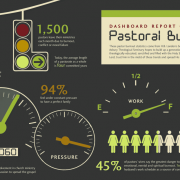Busy…
Having small children, as I do, ensures that I have a steady diet of Veggie Tales. If you’ve never seen a Veggie Tales episode you are definitely missing out. Bob and Larry are something of a staple in our home, which means that I regularly hear, and often cannot get out of my head, the little veggie ditties (i.e. songs; many of which are actually quite funny). One of the songs that I recently heard (for the millionth time) says at one point…
We’re busy, busy, dreadfully busy
You’ve no idea what we have to do.
Busy, busy, shockingly busy
Much, much too busy for you.
It is an interesting thing when a song written for 3-6 year-olds challenges you to think and question whether or not you’re doing what you should be doing.
We live in an dizzyingly busy society, and I find myself so often caught up in the busyness of it all. Words like “Be still, and know that I am God” (Psalm 46:10) and “Come aside… and rest a while” (Mark 6:31) are challenges that I often fail at. It is staggering just how fast days and weeks fly by. With seemingly endless things to “get done” I frequently find myself flying from one task to the next. Sadly, with my mind on the 3, 4, 5 or 10 other things I “must” get done, I just mechanically process the tasks. It’s like when you’re driving somewhere, with your mind elsewhere, and when you get to your destination you realize that you don’t remember any of the drive and wonder how you made it without an accident.
A few of months ago, while thinking on the story of Jesus at Lazarus’ house as Martha served and Mary sat at Jesus’ feet I was struck by Jesus’ word to Martha…
“Martha, Martha, you are worried and troubled about many things: but one thing is needful.”
Luke 10:41-42
There are a number of different ways to apply the passage, but as I meditated upon it I found myself confronted with the reality that I am often so absorbed with the “many things” that I need to do that I miss the opportunity to worship the Lord in the “one thing” that I’m doing at that moment. The Apostle Paul said, “So, whether you eat or drink, or whatever you do, do all to the glory of God.” (1 Corinthians 10:31) And “whatever you do, do it heartily, as to the Lord” (Colossians 3:23). I’ve been challenged since that meditation to seek to worship the Lord with whatever “one thing” I am doing from moment to moment. Whether it’s writing an email, answering a phone call, reading a Psalm or driving to an appointment; whatever I do, even eating and drinking, can be done as worship for the glory of God.
Trust me, it’s hard. Especially since I keep finding myself distracted by the 12 other things I need to do when this post is done… 😉
For further consideration I recommend a post from my friend Mickey Stonier at The Rock Church, San Diego, Pastor’s Blog











